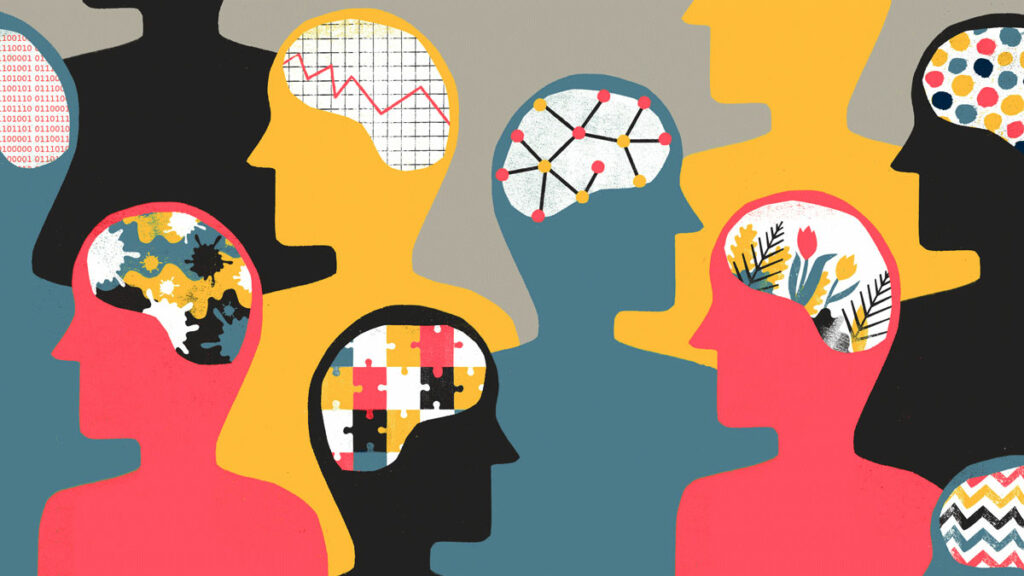Mental health is just as important as physical health, and yet many people do not seek the help they need when they are struggling with mental health issues. This is likely due in part to the fact that there are so many different types of mental health care out there. It can be hard to know which type of care is right for you. In this blog post, we will discuss holistic psychiatry and what it entails. We will also talk about the benefits of seeing a holistic psychiatrist and why more and more people are choosing this type of care!
Contents
- 1 Who Is A Holistic Psychiatrist?
- 2 What Issues Do Holistic Psychiatrists Treat?
- 3 Principles of Holistic Psychiatry
- 4 What Are the Benefits of Holistic Psychiatry?
- 5 What Are The Techniques Used By a Holistic Psychiatrist?
- 6 Qualities Of A Good Holistic Psychiatrist
- 7 What Is The Future Of Holistic Psychiatry?
- 8 Tips To Find A Holistic Psychiatrist
- 9 Conclusion
Who Is A Holistic Psychiatrist?

Holistic psychiatrists are mental health professionals who treat their patients using a holistic approach. This means that they not only focus on the symptoms of mental illness but also on the whole person. They take into account the person’s physical health, social environment, as well as their psychological state. Holistic psychiatrists believe that all of these factors play a role in mental health and should be considered when treating someone for mental illness.
It is important to note that holistic psychiatry is not the same as alternative medicine. Alternative medicine is any type of treatment that is not part of conventional medicine. Holistic psychiatry, on the other hand, is a branch of conventional medicine. This means that holistic psychiatrists are licensed and have completed all of the necessary training to be mental health professionals.
Holistic Psychiatry also has an additional focus on nutrition and lifestyle. This is because holistic psychiatrists believe that what we eat and how we live our lives can impact our mental health. For example, someone who is not getting enough nutrients may be more likely to experience anxiety or depression. Similarly, someone who is constantly under stress may also be more likely to develop mental health problems.
What Issues Do Holistic Psychiatrists Treat?
Holistic psychiatrists treat all types of mental health conditions, including:
- Anxiety disorders: Anxiety disorders are characterized by excessive worry, nervousness, as well as fear. They can include panic disorder, social anxiety disorder, and general anxiety disorder.
- Depressive disorders are characterized by persistent sadness, loss of interest in activities, and difficulty functioning. They can include major depressive disorder and dysthymia.
- Bipolar disorder: Bipolar disorder is characterized by alternating periods of mania and depression.
- Eating disorders: Eating disorders are characterized by abnormal eating habits and an obsession with food or weight. They can include anorexia nervosa and bulimia nervosa.
- Obsessive-compulsive disorder (OCD): OCD is characterized by intrusive thoughts (obsessions) and repetitive behaviors (compulsions).
- Post-traumatic stress disorder (PTSD): PTSD is a condition that can develop after someone experiences a traumatic event. It is characterized by flashbacks, nightmares, and anxiety.
Other disorders may also include:
- Attention-deficit/hyperactivity disorder (ADHD)
- Autism
- Schizophrenia
- Personality disorders
Holistic psychiatry uses an integrative approach, which means that multiple types of treatments are used in order to address all aspects of mental health. This may include therapy, medication, and lifestyle changes
This is because these disorders are often caused by imbalances in the body and mind. Holistic psychiatrists believe that by treating the whole person, they can help to balance the body and mind, which can lead to improved mental health.
One of the most important things is that it takes into account the whole person. This means that all of the different factors that may be causing or contributing to mental illness are considered. This can lead to more effective treatment because all of the different areas of concern are addressed.
Principles of Holistic Psychiatry

Like every other branch of mental health care, holistic psychiatry has its own set of principles that guide how care is provided. These principles include:
- The mind and body are interconnected. This means that the state of our physical health can impact our mental health, and vice versa.
- Holistic psychiatrists should treat the whole person, not just the symptoms of mental illness.
- Nutrition and lifestyle play a role in mental health. This means that what we eat and how we live our lives can impact our mental health.
- The environment plays a role in mental health. This means that our social environment, work environment, and home environment can all impact our mental health.
- Stress can trigger or worsen mental illness. This means that it is important to manage stress in order to maintain good mental health.
- Lastly, it not only uses comprehensive medicine (like psychiatrist drugs) but also alternative methods and naturalistic approaches to help the individual.
These principles guide the care that holistic psychiatrists provide. By taking into account the whole person and all of the different factors that can impact mental health, they are able to provide more effective care.
What Are the Benefits of Holistic Psychiatry?
There are many benefits to choosing holistic psychiatry over other types of mental health care. Some of these benefits include:
A more comprehensive approach to treatment
Because holistic psychiatrists take into account the whole person, they are able to provide a more comprehensive approach to treatment. This means that they can address all of the different factors that may be contributing to someone’s mental health issue. It also encompasses of the different aspects of the person’s life that may be affecting their mental health.
A focus on prevention
Holistic psychiatrists also focus on prevention. They work with their patients to identify any factors that may be putting them at risk for developing mental health problems. Once these factors are identified, they can work with their patients to develop a plan to prevent the onset of mental illness. For example, they may work with someone who is under a lot of stress to develop coping mechanisms to prevent them from developing anxiety or depression.
A focus on nutrition and lifestyle
Holistic psychiatrists also focus on nutrition and lifestyle. This is because they believe that what we eat and how we live our lives can impact our mental health. For example, someone who is not getting enough nutrients may be more likely to experience anxiety or depression. Similarly, someone who is constantly under stress may also be more likely to develop mental health problems. Some aspects of lifestyle that the holistic approach focuses on include:
- Diet
- Exercise
- Sleep
- Socialization
- Stress management
Holistic psychiatrists believe that by addressing all of these different areas, they can help to improve mental health.
Acknowledges biological aspects
In addition to the focus on lifestyle and nutrition, holistic psychiatry also acknowledges the role of biology in mental health. This means that they consider how our genes, hormones, as well as brain chemistry may be contributing to our mental health. For example, someone with a family history of depression may be more likely to develop the disorder themselves. By taking into account the biological factors that may be involved in mental illness, holistic psychiatrists can provide a more comprehensive approach to treatment. Some of the mental disorders that may have a biological component include:
- Anxiety disorders
- Depression
- Bipolar disorder
- Schizophrenia
- Eating disorders
- Substance abuse disorders
While there is still much to learn about the role of biology in mental health, holistic psychiatrists are at the forefront of this area of research.
Answers the question “why?”
Another benefit of holistic psychiatry is that it can help to answer the question “why?” For example, someone who has been diagnosed with depression may be wondering why they are feeling this way. A holistic psychiatrist will take into account all of the different factors that may be contributing to the person’s depression. This can include their family history, lifestyle, and any other stressors they may be experiencing. By understanding the different factors that may be involved, the person can further develop a plan to address all of these different areas.
Treats the person, not the disorder
Another benefit of holistic psychiatry is that it focuses on treating the person, not just the disorder. This means that they focus on helping their patients to improve their overall well-being, rather than just treating the symptoms of their mental illness. For example, rather than just prescribing medication to treat someone’s depression, a holistic psychiatrist may also recommend therapy and lifestyle changes. This comprehensive approach provides for an enhancement in the quality of treatment as it empathizes with the client as an individual with a unique set of needs.
Fewer side effects
Holistic psychiatry also often has fewer side effects than traditional psychiatric treatments. This is because holistic treatment focuses on using natural methods, such as diet and exercise, rather than medication. While medications can be effective in treating mental illness, they can also cause a number of unwanted side effects. By focusing on natural methods of treatment, holistic psychiatrists can help their patients to avoid these side effects.
If you are considering seeking mental health care, holistic psychiatry may be the right type of care for you. With its focus on the whole person, this approach to mental health provides a more comprehensive and individualized treatment.
What Are The Techniques Used By a Holistic Psychiatrist?
A holistic psychiatrist uses a variety of techniques to treat their patients. Some of these techniques include:
Psychotherapy
Psychotherapy is the process of talking to a therapist about your thoughts, feelings, and behaviors. This can help you to understand your mental health problems and develop new ways of coping with them. It also provides a space for you to talk about any stressors you may be experiencing. Some of the most popular approaches to therapy include approaches such as:

- Cognitive Behavioral Therapy (CBT)
- Interpersonal Therapy (IPT)
- Acceptance and Commitment Therapy (ACT)
- Dialectical Behavior Therapy (DBT)
- Eye Movement Desensitization and Reprocessing (EMDR)
- Accelerated Experiential Dynamic Psychotherapy (AEDP)
- Rational Emotive Behavior Therapy (REBT)
- Solution-Focused Brief Therapy (SFBT)
- Neuro-Linguistic Programming (NLP)
- Journal Therapy
- Trauma Therapy
- Sensorimotor Therapy
- Narrative Therapy
- Hypnosis Therapy
- Insight Therapy
- Family Therapy
- Play Therapy
- Psychodynamic Therapy
- Compassion-Focused Therapy
- Exposure Therapy
- Expressive Therapy
- Animal-Assisted Therapy
The right therapy for you will depend on your unique needs. Your therapist will work with you to determine which approach is best for you. They may even use a combination of these techniques to ensure maximum effectiveness.
Medication
While medication is not the only treatment option available, it can be an effective way to treat some mental health conditions. If your psychiatrist recommends medication, they will work with you to find the right type and dosage for you. It is important to remember that medication should always be used in conjunction with other forms of treatment, such as therapy.
Medication is different for everyone, and it may take some time to find the right medication for you. Be sure to talk to your psychiatrist about any side effects you may be experiencing.
Other factors that will affect the prescription of medication include:
- The severity of your symptoms
- Your medical history
- Other medications you are taking
- Your personal preferences
- Diet
The dosage and intake will also depend upon these factors. Although the prescription may look different for different disorders, some of the most common psychiatric drugs include:
- SSRIs (Selective Serotonin Reuptake Inhibitors)
- SNRIs (Serotonin-Norepinephrine Reuptake Inhibitors)
- Atypical Antidepressants
- Tricyclic Antidepressants (TCAs)
- Monoamine Oxidase Inhibitors (MAOIs)
- Lithium
- Anti-Anxiety Medications
- Benzodiazepines
- Anti-Psychotic Medications
- Stimulants
- Mood stabilizers
- Sleep medication
It is very important to work closely with your holistic psychiatrist to ensure that you are taking the right medications for yourself.
Nutritional counseling

As we already know, nutrition plays a key role in our overall health. What we eat can affect our mood, energy levels, and ability to focus. For people with mental illness, making sure you are getting the right nutrients is especially important. Nutritional counseling is a holistic approach to mental health care that focuses on the role of diet and nutrition in overall well-being. This type of counseling can help patients learn about the relationship between food and mood, understand how to make healthier choices, and develop sustainable eating habits.
Some of the most important nutrients for mental health include:
- Omega-three fatty acids
- Vitamin B12
- Folic acid
- Iron
- Magnesium
- Zinc
- Selenium
- Chromium
- Iodine
- Potassium
- Calcium
Holistic psychiatrists also come up with a lot of activities and techniques that can help their clients with effective nutritional counseling. These include:
- Food journaling: This is a way of assessing what the client is eating and how it affects their mood.
- Elimination diets: This is when the client eliminates certain foods from their diet to see if it has any effect on their mental health.
- Food sensitivity testing: This is a test that can help identify which foods the client is sensitive to.
- Functional medicine: This approach looks at the whole person and tries to find the root cause of the problem.
- Mindful eating: This is a way of being more aware of the food you’re eating and how it makes you feel.
- Nutritional counseling: This is when the counselor helps the client make changes to their diet based on their needs.
- Supplementation: This is when the client takes supplements to help with their mental health.
These are just some of the ways that holistic psychiatrists can help their clients with nutritional counseling.
Stress management
Stress is one of the key factors that can trigger or worsen mental illness. That’s why it’s so important to manage stress in a healthy way. Stress management is a holistic approach to mental health care that focuses on the role of stress in overall well-being. This type of counseling can help patients learn about the relationship between stress and mental health, understand how to manage their stress, and develop healthy coping mechanisms.
Some of the most common techniques used in stress management include:
- Relaxation techniques: This can involve things like deep breathing, meditation, yoga, or Tai Chi.
- Stress inoculation training: This is a type of training that helps people manage their stress in a healthy way.
- Breathing work: This is a way of using your breath to help you relax. It encompasses things like deep breathing, diaphragmatic breathing, and breath work.
- Guided imagery: This is a way of using your imagination to visualize a calm and peaceful place to help you relax.
- Mindfulness: This is a way of being present in the moment and accepting things as they are. It involves things like mindfulness meditation, mindfulness-based stress reduction (MBSR), as well as mindful breathing.
- Biofeedback: This is a technique that uses sensors to feedback information about the body’s stress response.
- Progressive muscle relaxation: This is a technique that involves tensing and relaxing different muscle groups.
- Exercise: This is another important factor in overall mental health. It can help reduce stress, improve mood, and increase energy levels.
All of these techniques are just a few of the ways that holistic psychiatrists can help their clients with stress management.
Natural Remedies
As discussed above, holistic psychiatry also gives emphasis to natural remedies. This is so because holistic psychiatrists believe that our bodies have an innate ability to heal themselves. Natural remedies can include things like:
- Meditation: Meditation is a mindfulness practice that can help you to focus on the present moment and become more aware of your thoughts and emotions.
- Yoga: Yoga is a form of exercise that involves physical postures, breathing exercises, and meditation. It can also help to improve your physical and mental well-being.
- Acupuncture: Acupuncture is a traditional Chinese medicine technique that involves inserting thin needles into the skin at specific points on the body. This practice can be used to treat a variety of conditions, including mental health disorders.
- Aromatherapy: Aromatherapy is the use of essential oils to promote relaxation and improve mood. It works by stimulating the sense of smell, which can further help to reduce stress and anxiety.
- Natural therapy: Natural therapy is any type of therapy that extracts the benefits of nature to help improve mental health. This can include practices such as walking in nature, gardening, and spending time in the sun.
- Herbal Supplements: Herbal supplements are a type of natural remedy that can be used to treat various mental health disorders. They range from mild to strong and can be taken in pill, powder, or liquid form.
All of the above are some ways by which holistic psychiatrists help their clients with natural remedies. They may use a combination of these to create a treatment plan that is tailored to the individual.
Qualities Of A Good Holistic Psychiatrist
Not all psychiatrists are created equal. When looking for a holistic psychiatrist, it is important to find one that has the following qualities:
- Empathy: A good holistic psychiatrist will be able to understand and relate to their clients. They should be able to see things from the client’s perspective and further offer them the support they need.
- Open-mindedness: A good holistic psychiatrist should be open to new ideas as well as different ways of thinking. They should also be willing to consider all options when it comes to treatment.
- Flexibility: A good holistic psychiatrist should be flexible in their approach to treatment. They should be willing to tailor their methods to the individual needs of each client.
- Compassion: A good holistic psychiatrist should have compassion for their clients. They should care about their well-being and want to help them in any way they can.
- Creativity: A good holistic psychiatrist should be creative in their approach to treatment. They should be able to think outside the box and come up with new and innovative ways to help their clients.
- Patience: Holistic psychiatry can sometimes involve long-term treatment plans. A good holistic psychiatrist should have the patience to work with their clients over an extended period of time.
If you are looking for a holistic psychiatrist, be sure to keep these qualities in mind. With the right help, you can overcome any mental health challenge you may be facing.
What Is The Future Of Holistic Psychiatry?

The future of holistic psychiatry looks bright. More and more people are beginning to see the benefits of this type of mental health care. As a result, holistic psychiatry is becoming more mainstream. This means that more psychiatrists are beginning to incorporate holistic approaches into their practice. It also means that more insurance companies are beginning to cover holistic psychiatric care. As awareness of the benefits of holistic psychiatry continues to grow, the future further looks bright for this field of mental health care.
It is also important to note that while holistic psychiatry is becoming more mainstream, it is still not as well-known or understood as traditional psychiatry. This means that there is still a lot of work to be done in terms of education and awareness. However, the future looks bright for those who are passionate about this type of mental health care.
Tips To Find A Holistic Psychiatrist
If you are interested in finding a holistic psychiatrist, here are a few tips to help you get started:
- Do some research: The first step is to do some research and learn more about holistic psychiatry. This will help you understand what this type of mental health care entails and whether it is right for you.
- Ask around: Once you have done some research, the next step is to ask around. Talk to your friends, family, and doctor to see if they know of any good psychiatrists in your area. Another great way to find a holistic psychiatrist is to check online. There are many websites that provide directories of mental health professionals.
- Make sure they are qualified: When you have found a few potential psychiatrists, the next step is to make sure they are qualified. This means checking to see if they have the proper licensing and credentials.
- Schedule an appointment: Once you have found a qualified psychiatrist, the next step is to schedule an appointment. This will give you a chance to meet with the psychiatrist and get a feel for their practice. During your initial appointment, you can ask any questions you may have about treatment. Some examples include:
-What are your qualifications?
-How long have you been in practice?
-What is your approach to treatment?
-How much do you charge?
-What other services do you offer?
By asking these questions, you can get a better sense of whether a psychiatrist is right for you.
- Lastly, you may also want to figure out logistics such as whether the psychiatrist takes your insurance or if they offer sliding scale fees.
Finding a psychiatrist is a big decision. Be sure to take your time and find someone who you feel comfortable with. This is someone you will be working with closely, so it is important to find someone you can trust.
Conclusion
In conclusion, holistic psychiatry is a type of mental health care that is becoming more mainstream. This type of care focuses on the whole person, not just the symptoms of their illness. It entails a more long-term approach to treatment and emphasizes the importance of the mind-body connection. It can also provide for more comprehensive and inclusive treatment of mental health. With the right psychiatrist, holistic psychiatry can be an incredibly effective form of mental health care.
If you are interested in finding a holistic psychiatrist for any type of psychological or emotional issues you might be facing, don’t hesitate to reach out to Mantra Care. We are the leading providers of premium quality healthcare all across the world. Our team of expert therapists will be more than happy to help you achieve optimum health and wellness. Visit our website today to book an online counseling session or download our free Android or iOS app!


